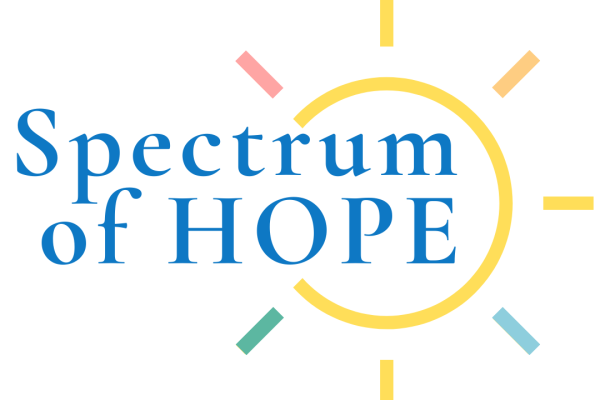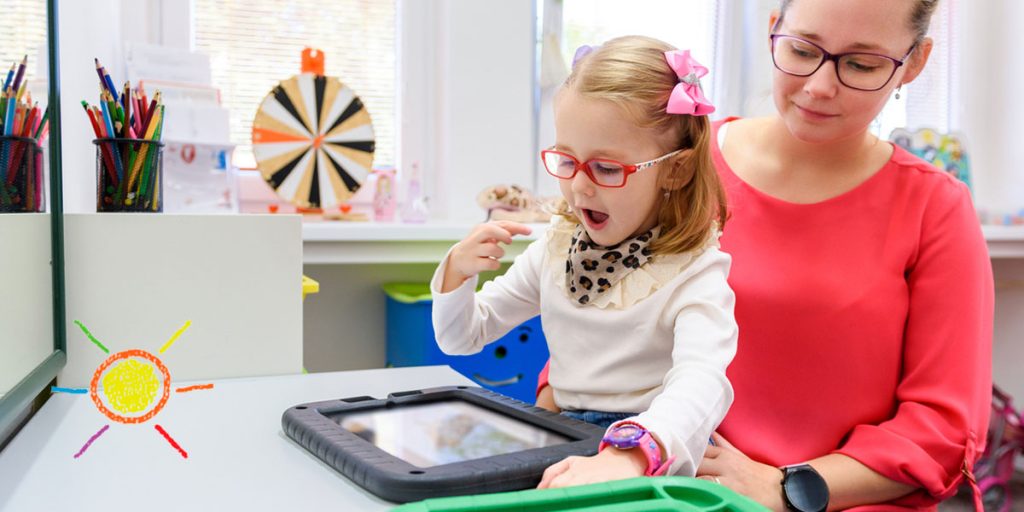Autism spectrum disorder (ASD) is a developmental disorder which can be greatly challenging for those on the spectrum, as well as for their families and loved ones. ASD’s effects on communication and socialization skills can be difficult for all members of a family. Siblings of children with ASD can sometimes feel confused, distanced, or isolated when it comes to interacting and connecting with their brother or sister with ASD. Depending on the particular presentation of ASD in a child, some siblings may not understand how to respect boundaries, be sensitive to their sibling’s needs, or deal with their own emotions about their sibling’s condition. Others may get along well with their sibling, but have questions or concerns about their condition as they encounter other children or get older.
Parents of children on the spectrum need to know how to communicate with their other children to ensure that they understand ASD and how to properly interact with their sibling. These children must also have the care and attention they need to flourish as individuals while supporting their sibling with ASD.
How Children Relate to Siblings With ASD
Just as with the presentation of ASD, the experiences of siblings of children with ASD can vary widely. Some may not recognize anything out of the ordinary in their brother or sister. Some may have a sense that something is different when compared with others, while some, whose sibling may have ASD symptoms which manifest as meltdowns or aggressive behavior, may feel unwanted or even intimidated by their sibling.
The ways that siblings interact, communicate, and relate to one another can differ greatly depending on how ASD presents. For instance, some children with ASD may engage in play with siblings, but not communicate with language at the same rate as peers. Others may have no issues with language, but may be easily overstimulated and experience “meltdowns” to which siblings may have a variety of reactions.
Factors in Strained Sibling Relationships
There are a number of common factors which can contribute to strained relationships between siblings when one child has ASD. Research has found that “sibling relationships may be at risk where the child with ASD has significant behavior problems,” such as aggressive physical behavior, which may scare or alienate siblings.[i] Marital stress experienced by parents can be perceived by children and may contribute to stress and friction between siblings.[ii]
As children get older, the expectations and stress of caring for a sibling with ASD – especially when parents are unable to be primary caregivers for the child with ASD – can also contribute to strained relationships.[iii] However, research has also found that positive relationships between siblings resulted from siblings having an understanding of ASD, having developed healthy emotional coping abilities, and having experienced positive responses and role modelling of behavior towards the sibling with ASD from their parents.[iv]
Talking With Your Child About Their Sibling’s ASD
Conversations with children about their sibling’s ASD will differ depending on the context, age, and maturity of other children. Depending on the age of the children and their relationship, children may be naturally understanding or responsive to the needs of their sibling with ASD. Still, parents may need to communicate the basics of ASD to their young children – that it is not contagious, not their fault, that their brother or sister experiences the world differently, or that their sibling struggles with certain skills that may come more easily to others. As children grow older, their capacity for understanding autism will likely grow as well. Parents should ensure that their children have a baseline understanding of ASD, how it presents in their sibling, and what sorts of behaviors are appropriate. It’s best to tailor this to an age-appropriate level and to be responsive to any questions your child may have about the condition.
Addressing Difficult Emotions About a Sibling’s ASD
Sometimes, siblings of children on the spectrum may have strong feelings which need to be addressed by parents. Children may feel jealousy or embarrassment over their sibling’s behavior, or the desire that more attention be paid to them versus their sibling with ASD. They may also experience guilt over these feelings. These are difficult and challenging emotions, but important issues to address. In instances where siblings have difficulties understanding or accepting their sibling with ASD, parents need to communicate the necessity of patience, compassion, and understanding. Parents can explain the challenges that the sibling with ASD may face in terms of chores, communication, or handling emotions, and how these can necessitate extra time, allowances, or attention from parents.
Having explained the unique traits and challenges that autism presents, parents should also work to acknowledge and address any emotional issues their other children may be facing. This may involve putting a greater focus on positive recognition and praise for their child, helping their child find healthy outlets for difficult emotions, planning shared alone time or other activities together, or finding ways to give the sibling more space or breaks when appropriate.[v] In “A Sibling’s Guide to Autism,” the authors also advise finding activities and ways for children to connect with their sibling on the spectrum that are safe and fun for the individual with ASD, such as playing a favorite game together.[vi] For a more in-depth guide on having these conversations, as well as helpful resources for your children, please see the Organization for Autism Research’s helpful guides here.[vii]
Siblings of children with ASD can exhibit more emotional maturity, as well as more positive self-images, when compared to siblings of typically developing individuals.[viii] Just as every person with ASD is different, so are the particular difficulties faced by every family. Siblings will likely need time and patience to adjust to their brother or sister’s condition. However, attentive and loving parenting, appropriate treatment for the child with ASD, and a willingness to attend to your child’s emotional needs will go a long way in facilitating a healthy relationship between your children.
The team at MySpot Care has over a decade of experience offering compassionate, evidence-based treatment for autism spectrum disorder in the greater Houston area. Early intervention and treatment for ASD can help your child develop communication and social skills, and overcome any developmental challenges or problem behaviors that are impacting their growth or well-being. Treatment can assist the whole family to better understand ASD and to work together to solve whatever challenges that arise. We will work with you to develop an individualized treatment plan that addresses the unique behavioral and developmental difficulties that your child or loved one faces. For more information, please give us a call today at (281) 204-8122.
https://pubmed.ncbi.nlm.nih.gov/24460897/
https://pubmed.ncbi.nlm.nih.gov/17845237/
https://www.iidc.indiana.edu/irca/articles/siblings-perspectives-some-guidelines-for-parents.html
https://www.iidc.indiana.edu/irca/articles/siblings-perspectives-some-guidelines-for-parents.html
https://www.autismspeaks.org/sites/default/files/2018-08/Siblings%20Guide%20to%20Autism.pdf
https://researchautism.org/how-we-help/families/sibling-support/


